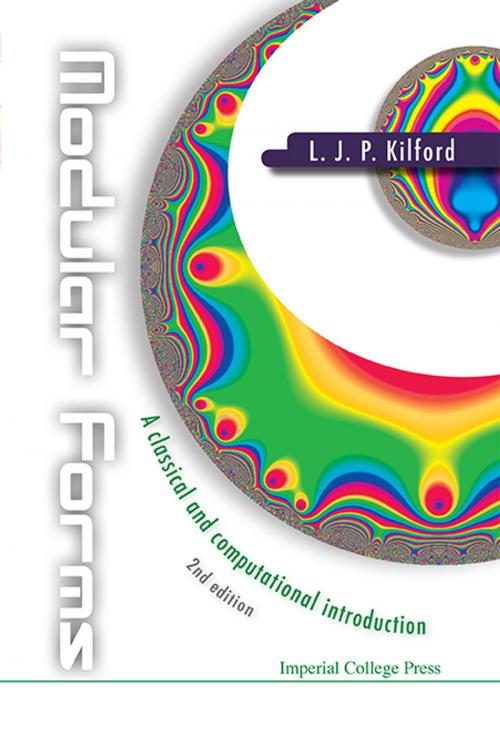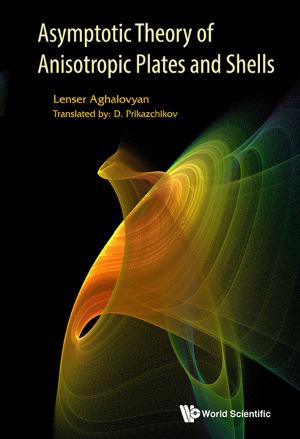Modular Forms
A Classical and Computational Introduction
Nonfiction, Science & Nature, Mathematics, Discrete Mathematics, Number Theory| Author: | L J P Kilford | ISBN: | 9781783265473 |
| Publisher: | World Scientific Publishing Company | Publication: | March 12, 2015 |
| Imprint: | ICP | Language: | English |
| Author: | L J P Kilford |
| ISBN: | 9781783265473 |
| Publisher: | World Scientific Publishing Company |
| Publication: | March 12, 2015 |
| Imprint: | ICP |
| Language: | English |
Modular Forms is a graduate student-level introduction to the classical theory of modular forms and computations involving modular forms, including modular functions and the theory of Hecke operators. It also includes applications of modular forms to various subjects, such as the theory of quadratic forms, the proof of Fermat's Last Theorem and the approximation of π. The text gives a balanced overview of both the theoretical and computational sides of its subject, allowing a variety of courses to be taught from it.
This second edition has been revised and updated. New material on the future of modular forms as well as a chapter about longer-form projects for students has also been added.
Contents:
-
Historical Overview
-
Introduction to Modular Forms
-
Results on Finite-Dimensionality
-
The Arithmetic of Modular Forms
-
Applications of Modular Forms
-
Modular Forms in Characteristic p
-
Computing with Modular Forms
-
The Future of Modular Forms?
-
Modular Forms Projects
-
Appendices:
- Magma Code for Classical Modular Forms
- Sage Code for Classical Modular Forms
- Hints and Answers to Selected Exercises
Readership: Graduate students studying or taking a course in modular forms.
Key Features:
- Covers the computational side together with the theory
- Has a wide variety of exercises
- Historical asides and references to modular forms in mathematical culture which help ground the subject and motivate student interest
Modular Forms is a graduate student-level introduction to the classical theory of modular forms and computations involving modular forms, including modular functions and the theory of Hecke operators. It also includes applications of modular forms to various subjects, such as the theory of quadratic forms, the proof of Fermat's Last Theorem and the approximation of π. The text gives a balanced overview of both the theoretical and computational sides of its subject, allowing a variety of courses to be taught from it.
This second edition has been revised and updated. New material on the future of modular forms as well as a chapter about longer-form projects for students has also been added.
Contents:
-
Historical Overview
-
Introduction to Modular Forms
-
Results on Finite-Dimensionality
-
The Arithmetic of Modular Forms
-
Applications of Modular Forms
-
Modular Forms in Characteristic p
-
Computing with Modular Forms
-
The Future of Modular Forms?
-
Modular Forms Projects
-
Appendices:
- Magma Code for Classical Modular Forms
- Sage Code for Classical Modular Forms
- Hints and Answers to Selected Exercises
Readership: Graduate students studying or taking a course in modular forms.
Key Features:
- Covers the computational side together with the theory
- Has a wide variety of exercises
- Historical asides and references to modular forms in mathematical culture which help ground the subject and motivate student interest















